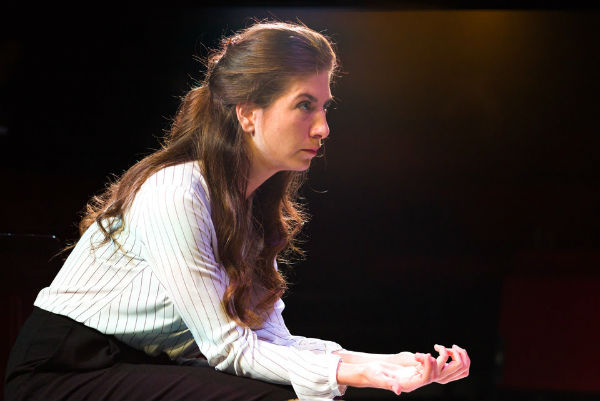Rotterdam at Trafalgar Studios, SW1
reviewed for The Times, 29th July 2016
![]()
Alice can’t handle decisions. For the past seven years, she’s talked about leaving Rotterdam, Europe’s busiest port and an apt location for a play consumed by transition. When Alice’s girlfriend, Fiona, announces that (s)he should really be Adrian, Alice’s yuppie expat life is thrown into confusion.
It’s all a bit As You Like It, set in Ikea. In the best possible sense. It’s also clear that the playwright Jon Brittain has been listening to the Beautiful South hit Rotterdam (or Anywhere), with its languid scorn for kitschy-cute conformity.
Read about trans issues online and you will be plunged into a world of vituperative debate, powered by theorists with diametrically opposed visions of gender. Brittain’s play doesn’t shy away from tough issues either. (If Adrian wants men and women to be treated differently, is he a bad feminist? Alice has spent years coming to terms with being gay — is she now expected to play at being straight?)
Yet as befits theatre’s capacity for empathy, Brittain has produced a gentler, more nuanced exploration than most defensive missives on this subject. Adrian is hurting; Alice is hurting too. Their future is difficult and uncertain.
If Rotterdam is this play’s musical motif, Friends is its style guide, and not just for Ellan Parry’s bright, consumer-retro designs. Donnacadh O’Briain’s production has plenty of the sitcom about it, pulsing with electro-pop and opening with a slow-start scene of predictable, domestic bickering.
It gets subtler, which has a lot to do with two impressive central performances. As Fiona/Adrian, Anna Martine is a maze of possibilities, lithe and unpredictable, and as her character absorbs male hormones, capable of surprising violence. Alice McCarthy channels Alice’s uptight femininity with the neurotic comic timing of Jennifer Aniston, then hits all the emotional targets as things get serious.
There’s strong support, especially from Jessica Clark as a neon-clad Eurotrash temptress in Alice’s office. The twist that Alice’s previous lover was Fiona/Adrian’s brother (a dorkish Ed Eales-White) feels somewhat contrived — this isn’t actually Shakespeare — and a sequence of reveals in early scenes feels like an unsuccessful segue into melodrama. Yet there’s too much to enjoy here for any of this to matter much. Welcome warmth brought to a toxic public debate.







